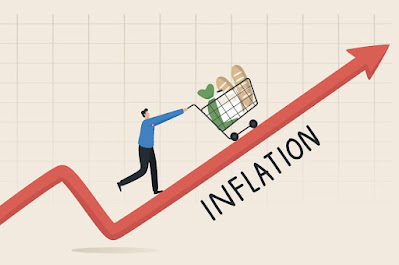Surprising Interest Rate Cut
 |
| Stephen Poloz announcing the rate cut |
So what happened? Well, it appears the price of oil happened. Since June 2014, the price of oil has dropped over 50%. It's currently around $48 a barrel.
The Bank of Canada expects the price of oil to jump back up to $60 a barrel. But doesn't expect the price of oil to jump back up to $100 a barrel in the coming year.
So how does a cut in the interest rate affect those looking to retire early?
It really depends.
The first thing I thought of when I heard the interest rate cut was our variable rate mortgage (also referred to as an adjustable rate mortgage).
Our mortgage rate with our lender is prime - 0.10%. The current prime rate at most financial institutions is 3%. That means our rate is 2.90%.
However, most financial institutions base their prime rate on the overnight lending rate, the rate the Bank of Canada cut yesterday. If most financial institutions cut their rate to match the Bank of Canada, the new prime rate should be 2.75%.
If our financial institute follows suit, then we'll be paying 2.65% interest on our mortgage. Added up over the years, that's a huge savings.
People in the middle of their term with fixed rate mortgages are stuck with their current rate.
However, if your fixed rate mortgage is up for renewal, then now is a good time to get a better rate. Already, I've heard of banks calling clients looking to renewing their mortgage and offering a lower rate than the rate they offered the previous week.
The next thing that affects people looking to retire early in the interest paid on balances in savings accounts. I have no doubt banks will be cutting these rates. If you hold a lot of your savings in bank accounts, then you will be affected. However, if you're like me and most of your money is invested, then the lower interest rates on savings accounts will not affect you.
Unfortunately, with lower interest rates, it means people are looking to invest their money elsewhere. That typically means the stock market. This means everything will get more expensive. This is both good and bad. Good because everything you currently hold will be worth more. Bad because future investments will cost more. Yesterday after the announcement, the TSX went up 250 points.
How else does this affect everything else?
Well, the next obvious thing is that borrowing money will be cheaper. That means house prices will go up as more people will be able to qualify for higher mortgages. Dipping into your line of credit will be easier as well as the interest charged will be lower. People with existing debt in a line of credit will benefit from the lower rate as more money from their monthly payments will go towards the principal.
However, if you're reading this and looking to retire early, you shouldn't have a balance in your line of credit. Right?
After that, the last thing I can think of is the price of the Canadian dollar. After yesterday's announcement, the dollar dropped over a cent. It doesn't sound like much, but it's currently around 81 cents US and has been on a steady decline for months now. The price of the dollar now means increased cost of importing goods (like strawberries from California) and increased cost to travel (you need about $1.20 Canadian to buy $1 US).
Grocery stores may increase prices as a result. This might be offset by the lower cost of oil. Who knows? When it comes to corporate profits, sometimes the big chains just need an excuse like this to gouge us. The travel thing won't affect me as much as I have a stockpile of US dollars in one of my bank accounts. If I do need to travel to the US or elsewhere outside Canada, I can withdraw the US dollars and not worry about the exchange rate.
Overall, the cut in interest rates is only a drop in the bucket. The resulting waves will take time to affect other sectors. It hasn't been 24 hours since the announcement and already there are news articles about the rate dropping further.


Comments
Post a Comment